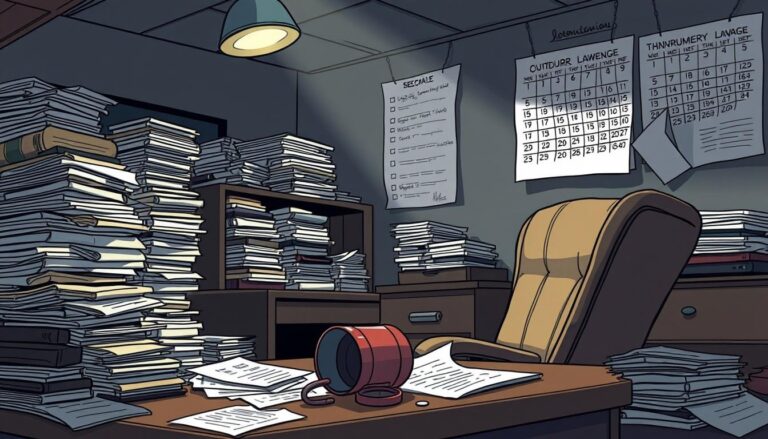Can a Driving Charge Affect Your Employment? What You Need to Know
When facing a driving charge, many individuals are concerned about the possible consequences beyond the legal implications, especially when it comes to their careers. A driving-related charge can range from speeding tickets to more severe offenses such as driving under the influence (DUI) or driving while intoxicated (DWI). Depending on the severity of the charge, the impact on your employment may vary. Understanding the potential effects can help you navigate this difficult situation and make informed decisions.
Understanding Driving Charges and Employment Consequences
A driving charge, particularly a DUI or DWI, can have significant ramifications not only in the courtroom but also in the workplace. While the legal penalties for such offenses typically involve fines, license suspension, or even jail time, employment-related consequences are also possible.
Many employers, especially those in fields that require driving, may view a driving charge as a sign of irresponsibility or risk. For those in positions where driving is a key part of the job, such as delivery drivers or sales representatives, a driving-related charge could result in job loss.
What Employers Look for in Background Checks
Employers often conduct background checks to assess potential hires. These checks can reveal criminal records, including any driving-related offenses. Depending on the nature of the offense and the employer’s policies, a driving charge could influence hiring decisions.
Many companies are particularly cautious about hiring individuals with DUIs or DWIs due to concerns about the safety of the workplace and the risk associated with employee behavior outside the office.
In some states, employers are prohibited from considering criminal records for certain types of jobs, especially when the offense does not directly relate to the job duties. Yet, some employers may still choose to inquire about driving history if the role involves operating vehicles or handling sensitive tasks that require a higher level of responsibility.
What If Your Job Requires Driving?
Certain professions require employees to drive as part of their daily responsibilities. These include truck drivers, delivery personnel, and sales representatives. If you hold such a position, even a minor driving charge can put your job at risk. Employers in these industries are often held to high standards regarding the safety of their employees and the public.
A DUI or DWI charge may not only lead to immediate suspension or termination but could also result in the loss of the necessary licenses or certifications required for your job.
In cases where a DWI attorney in Long Island or a legal professional in another place helps you to reduce the charges or secure a plea deal, your employer may still take this into account. Even if the charge is dismissed or reduced, the mere association with a serious offense like DWI could have lingering effects on your career.
Impact on Professional Licenses and Certifications
Certain professions require individuals to maintain specific licenses or certifications, such as those in healthcare, law, or transportation. A driving charge, particularly one involving alcohol or drugs, may affect your ability to hold or renew these licenses.
For instance, if you’re a commercial driver or operate heavy machinery, a DUI conviction could lead to suspension or revocation of your commercial driver’s license (CDL). In other fields, a criminal charge may prevent you from obtaining or renewing professional certifications, making it harder to maintain employment in your chosen industry.
Many professional boards or regulatory bodies have strict rules regarding criminal convictions. Even if the conviction is not directly related to your job duties, it could still raise concerns about your ability to perform responsibilities safely and ethically.
How Long Does a Driving Charge Affect Your Employment?
The duration of a driving charge’s impact on your career varies depending on the severity of the offense, your industry, and the employer’s policies.
For some positions, a driving-related charge may be a one-time concern that fades over time. In less severe cases, such as minor speeding violations, the impact on your job may be minimal, and your employer may not consider the charge once sufficient time has passed.
For more serious offenses, such as a DUI or DWI, the consequences can be long-lasting. Even after the legal penalties are served, the stigma associated with such charges may continue to affect your professional reputation. A DWI conviction could follow you for years, and employers may be hesitant to hire or retain someone with such a background.
Can You Prevent Employment Issues After a Driving Charge?
While there is no guarantee that a driving charge will not affect your employment, there are steps you can take to mitigate the impact. Addressing the charge legally and ensuring the best possible outcome can help reduce the severity of the consequences. Hiring a knowledgeable attorney to navigate the legal process can lead to reduced charges or even dismissal in some cases.
Driving charges can have serious consequences, both legally and professionally. The impact on your employment will depend on various factors, including the nature of the charge, the requirements of your job, and your employer’s policies. By understanding these potential consequences and taking steps to address the issue, you can better navigate the challenges that may arise from a driving charge.







